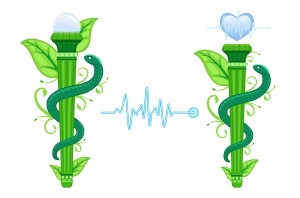 As mid-term exam season approaches, and school is well under way, many individuals may feel stressed or worn – out. Even the wear of every – day life can wear on you and cause you to feel over – whelmed. As a result, I thought it might be beneficial to discuss stress and what your naturopathic doctor can do to help.
As mid-term exam season approaches, and school is well under way, many individuals may feel stressed or worn – out. Even the wear of every – day life can wear on you and cause you to feel over – whelmed. As a result, I thought it might be beneficial to discuss stress and what your naturopathic doctor can do to help.
What is Stress?
According to Webster’s Dictionary, Stress can be defined as, “a state of mental tension and worry caused by problems in your life, work, etc.; something that causes strong feelings of worry or anxiety; a physical force or pressure”. I think it goes without saying that all of us have experienced stress in our lives, and what we perceive as stressful, might not be so stressful to another, and vice versa. We all respond to and cope with our stresses differently as well. Some of us try to adopt healthy coping habits, others not so healthy. It is my hope that I can provide you with some ideas as to how to cope effectively with your stress.
Naturopathic Treatments that may help
There are many different things that can be done to help someone to cope with stress. In short, all of the different modalities (tools that we use) that we practice can be beneficial for helping to relax and cope with stressful situations. All of the treatment options might be useful to help you to cope with stress depending on your specific case and needs: Acupuncture, Massage, Naturopathic Manipulation, Hydrotherapy (i.e. sauna treatments, peet baths, constitutional hydrotherapy treatments), Counselling, Nutrients, Botanical Medicine, Lifestyle Counselling, and Homeopathy. Each individual is different, and so there is no one treatment that would be good for everyone. So, as mentioned above, a treatment route would be chosen based on your specific, individual needs.
Ways to deal with stress at home:
No one answer provides a suitable option for everyone and their coping needs. As a result, I have provided examples below of healthy ways to cope with stress:
- Journaling
- Listening to Music
- Breathing
- Exercise
- Talking to others
- Meditating
- Praying
- Give yourself time for you – do something that brings you joy
The next time you are feeling stressed, and need to find a healthier way to cope with your stress, take the time to explore these options and find what works best for you.
What not to do
As forshadowed above, there are some coping mechanisms that are less than ideal when trying to cope with stress. Below I have provided a few examples of unhealthy coping mechanisms:
- Binge eating
- Drinking
- Avoidance
- Gambling excessively
- Smoking
- Using elicit drugs
- Isolating yourself from others who can help
Have you benefitted from reading this blog? Know someone that would benefit as well? Share, Like, Comment, or Tweet this article, and let me know what you think.
Some of the information provided above may not be appropriate for everyone, please consult with your doctor before trying any of the above. If you are interested in Naturopathic Medicine and wanting a different approach to your health care needs, please book an appointment with Elisha Cook at the RSNC (416-498-9763) today and let me help you achieve your health goals.

